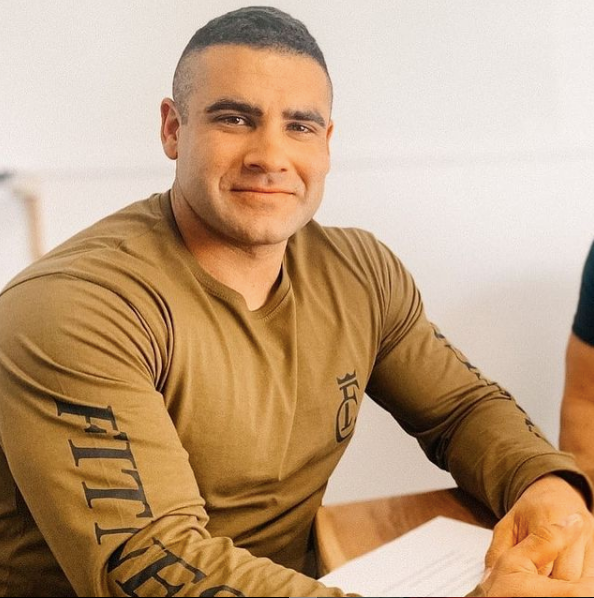Q & A with Morgan Steel about Nutrition

Nathan: Hello Fitness Cartel, Its Nathan here and welcome to the first Q & A for Fitness Cartel Australia. I am here with Morgan Steel, Morgan, Welcome!
Morgan: Thank you so much! It’s a pleasure to be here today and I am looking forward to what Fitness Cartel have to offer. It’s going to be such a big movement for the Fitness Industry.
N: So, I’m going to give you a background on Morgan, Morgan has a Bachelor of exercise science majoring in Nutrition and a major in exercise physiology. Talk about experience! You’re a very experienced trainer and we are so glad to have you here today.
N: Ok! Let’s kick it off with the first question, what’s your tips on building muscle and staying lean?
M: That’s an excellent question! One of the main things I suggest to my clients and people is carb cycling. When you’re in the gym and training with your major muscle groups such as legs and back, you want to consume majority of your carbohydrate(carb) intake around those training sessions, and have a higher carbohydrate(carb) intake on your training days, and a lower intake and keeping them to a minimum on days when you don’t train or your rest days so you can burn fat and not intake excess calories when you don’t need them.
N: But Morgan! Won’t carbs make me fat?
M: Ha ha that’s such a myth! Carbohydrates are your bodies fuel source so to build muscle and perform at the gym, you need carbs! Of course, you can have too many, but it’s all about when you consume your carbs. So, if you’re trying to keep body fat to a minimum, keep your consumption of carbs around your training, your pre, intra, and post meals. That’s the key! Around the rest of the day, you don’t have such a demand for carbs, so no need for excessive consumption. I personally, like to have a little bit of carbs at breakfast to break the fast. Meal 2, of 3 minimal carbs or even none, and consume your carbs around your training
N: There are good carbs and bad carbs right? Could you explain that to us?
M: Yes of course! So, you could break up carbs into G.I index, high G.I carbs are fast absorbed, more sugar based such as coco pops. And low G.I is slow digesting, such as oats. A great pre workout meal would include low G.I foods such as oats. You have the choice to take advantage of your body post training where your body is like a sponge and consume some high G.I foods. Not all carbs are bad carbs but everything in moderation!
N: One of the other questions we have, can you explain a macro split and why it is important?
M: So, we have macro nutrient, proteins, carbs, fats and we have micronutrients, your minerals for the body. So, when you consume a meal, that meal is broken down into carbs, proteins and fats. And the percentage you can divide that into. A macro split is where you split your calories into a 40/40/20 split for example. 40% of your calorie intake goes to carbs, 40% to protein and 20% to fats. Now this is totally subjective and individual to each person. Personally, I find generally women respond well to a high fat and lower carbs split and males respond better to a high carb and lower fats. The best thing to do is to try a macro split for week and see how your body responds to it. It’s really trial and error.
N: The next question is a bit of a funny one, how do you recommend i drop my COVID-19 Pud?
M: You’re not a bad person for putting on weight in covid. The gyms weren’t open, we couldn’t train as hard. But now the gyms are open, we need to suit your nutrition program, eating good and clean foods, non-processed and eating enough calories so your body so they’re more out then in. It’s also important to train hard in the gym. And you’ll get back to your previous COVID-19 body!
N: Yes! So important to get back into gym and watch what you put into your mouth. The next question is tips on keeping quality muscle for a 45y+ woman.
M: This question is really hard to answer without some background history of the individual. I would need some more information such as hormone factor, pre-menopause etc. please DM us on Instagram so we can help you more. But a general overview for this age bracket, actually any age bracket, is to train as hard as you can in the gym and I see a lot of women come to me and say “I don’t want to be to bulky” but that’s important! Women don’t have enough testosterone to do that. So, it’s important to train hard, get the extra rep, work on the form, work until complete failure and tailor your nutrition to your lifestyle. Once again, keep carbs around your training.
N: And this leads into our next question which is, tips on how to gain muscle as a woman
M: Gaining muscle for women is a little hard then a man due to the lack of testosterone levels and muscle structure, but there is really no difference, apply yourself in the gym! I love the principle of progressive resistance and overload, if you got 10 reps on the leg press, get 11 this week. I see so many women coming into the gym doing the same thing in the gym week after week and you will look the same the next year! You have to push yourself and increase your training to increase your muscle mass.
N: Another question is the difference between dirty and clean bulking?
M: By dirty bulk they mean consuming your calories from fast food and bad food sources. So, for example, clean food would be chicken, rice, broccoli, fish and dirty foods would be fast food, KFC, ice cream, pizza. Now someone might come back to me and say if I eat 1000 calories of KFC it’s the same as consuming 1000 calories of chicken and rice. And yes, you’re right, the calories are the same, but the issue is the lack of nutrients. KFC you’re going to be getting a lot of trans fats, oils, nasties. Your clean food, you’re getting a lot more micro nutrients. I would always suggest clean bulking, but everything in moderation. I don’t expect you to eat clean for your whole life. Enjoy yourself, have a meal one a week or one day in the week and go out and enjoy, it’s not going to wreck your gym! Just don’t feel bad about it.
N: And the last question is how do you choose your coach? And what steps do you personally take to choose your coach, or a coach?
M: Really good question, I even have my own nutrition coach, and people wonder why you need one when you’re qualified in nutrition. If you look at Michael Jordan, he had a shooting Coach, every professional and good athlete still has a coach! Because we question our self, doubt our self or even include a little bias. So, if you do decide to choose a coach, check out their resume, check out their education, see what they’ve done with their previous clients, have they got great results? Unfortunately, the fitness industry is full of egocentric people, uneducated people so it’s important you pick the right coach who also agree with your morals and values. See if you can contact previous clients and ask them questions, were they reliable, were they concerned about your health both physical and mental? Not just about the result? Pick someone who you can gel with as a person, who you get along with.
N: Totally agree, you have to gel with them. It’s a physiological battle. So, my advice, is to choose an all-rounder who can suit your lifestyle. If its nutrition you’re after, choose someone who specialises in nutrition. And that’s a wrap guys! Thank you so much Morgan for your time
M: It was great! I just wanted to say thanks to everyone who sent their questions in, you really give us a direction and we can answer exactly what you’re after! Thank you, Fitness Cartel, for having me today.
N: Thanks guys! Look up Morgan Steel. If you need any more information let us know! I’ll put his details below or contact us and we can link you up!
Morgansteel@gmail.com
@steel_bodies
@fitnesscartelaustralia
-
Posted in
Fitness, Morgan Steel, Nutrition, Q&A









